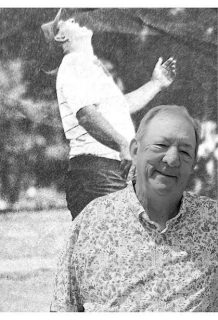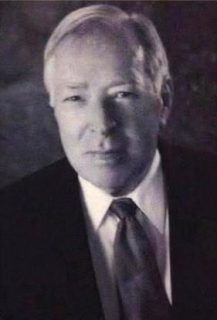Memoir: Hillbilly culture antithesis to writer’s success
Published 1:00 am Sunday, October 2, 2016
“Hillbilly Elegy: A Memoir of a Family and Culture in Crisis” by J.D. Vance. New York: HarperCollins Publishers, 2016. 257 pages, $27.99 (hardcover).
At age 31, J.D. Vance may be young for an autobiographer, but “Hillbilly Elegy: A Memoir of a Family and Culture in Crisis” is really a personal illustration of a larger pattern of troubling changes affecting the white working class over those same three decades. Vance appears to have triumphed over those discouraging patterns, but a close reading of “Hillbilly Elegy” shows just how fragile his success has been. The book suggests that the enormity of problems faced by rural, Southern and Rust Belt working-class whites are too complex for simple policy solutions.
Trending
Vance was raised in the steel mill town of Middletown, Ohio, but his grandparents, who played an outsized role in his childhood, were from Breathitt County in eastern Kentucky. Like thousands of others, they had left Appalachia in the years after World War II to work in the factories of the industrial Midwest. But loyalty to family is a key hillbilly virtue, and his grandparents traveled regularly back to their Kentucky home place. Vance spent much of his youth there, enough so that he considers himself a hillbilly.
For Vance, hillbilly is not a pejorative term and does not necessarily describe people from a particular geographical region, but rather those who share a common set of values and habits of lifestyle that are simultaneously admirable and self-destructive. Vance treats his subjects, whether his family or the larger culture, with respect, but he pulls no punches in describing their failings.
Vance’s grandparents, whom he calls Mamaw and Papaw, were hard-working people and thoroughly devoted to him and his older half sister. But they were also fiercely violent and vulgar. Papaw was a recovering alcoholic, but the damage to his family in earlier years was evident. Vance’s mother, who witnessed Papaw’s alcoholism and the volatile nature of his relationship with Mamaw, earned an associate degree in nursing but struggled with lifelong drug addiction herself. Vance’s biological father exited his life when he was 6 years old (he did return to play a role later, limited mostly by geography and Vance’s attachment to his mother’s family), after which his mother rotated in and out of an endless stream of mostly destructive relationships with various men, several of whom she married.
Mamaw and Papaw offered refuge to Vance from the turbulence of his mother’s life, and eventually he moved in with Mamaw permanently. While academics were sometimes a struggle for Vance, he finished high school strongly and was accepted at Ohio State University. But Vance knew he was emotionally unprepared for the independence of college and opted instead to join the Marines, where he served in Iraq and was given a high-profile assignment as leader of a public affairs unit. Vance credits the Marine Corps with getting him into shape, physically and psychologically, for life without Mamaw. He later attended law school at Yale, which provided another set of challenging cultural lessons. He works today for an investment firm in San Francisco, though he still keeps regular contact with family in Ohio and Kentucky.
“Hillbilly Elegy” is a gripping tale because of the pain, drama and triumph of Vance’s personal story. But its most compelling feature is how Vance lays his biography against the backdrop of desperation and decline among his “people.” Vance describes the poverty and lack of opportunity in Appalachia that drove the great migration of folks like Mamaw and Papaw into Rust Belt cities, and then the massive decline of high-paying jobs for low-skilled workers that has crippled those areas in the wake of economic globalization. Vance said his education in Ohio schools was good enough, but there was no great sense of urgency on the part of adults in his life to prepare him for the challenges children like him were about to face.
Vance is clear that some of these forces are beyond the control of the working class and are great inhibitors to upward mobility, even for those who aspire to more. But much of the suffering Vance saw in his family and among their peers was self-induced. The larger story of “Hillbilly Elegy” is, as Vance puts it, “about reacting to bad circumstances in the worst possible way. It’s about a culture that increasingly encourages social decay instead of counteracting it.”
Trending
Here Vance is talking about the cycles of divorce, out-of-wedlock childbirth, drug addiction, violence and widespread, voluntary unemployment among able-bodied males that are especially intense among those living in rural areas and economically depressed regions like Appalachia and the Rust Belt. Above all, Vance decries the attitude of helplessness among so many of his childhood peers and the belief that the world owed them something for nothing.
Vance doesn’t credit his personal escape from these patterns to any particular hard work or admirable qualities on his part. He is clear that he almost did not escape at all, and attributes his success to the influence of a handful of vitally important – if inevitably flawed – people, including college professors and Marine Corps mentors, but also his grandparents and even his mother who, despite her host of problems, encouraged his love of learning. Vance says that he benefited from decent schools, Pell grants and his grandmother’s Social Security, but all these programs can do is minimize the effects of poverty. There are no public policies that provide the kind of positive personal influences that tipped the scales for Vance.
In this way, “Hillbilly Elegy” is not an especially happy book for those seeking solutions for the problems of the working poor, despite the page-turning drama of Vance’s story. But for those who live and work among families like his, it does suggest that there is no force more powerful for upward mobility than having a network of caring, encouraging people who can provide a personal example and empowering knowledge of the personal habits and decisions that make for a successful life. Anyone who has lived the hillbilly culture will find the book immediately familiar, and those interested in issues of social immobility will find it troubling and compelling.
— Reviewed by Gary W. Houchens, Western Kentucky University Department of Educational Administration, Leadership and Research.






